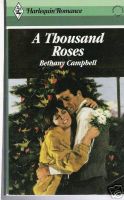Indiscreet, by Mary Balogh
>> Tuesday, January 31, 2006
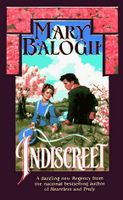 The Author of the Month read we do at one of my Yahoo chat groups is supposed to be a bit of a challenge, the opportunity to try things we otherwise wouldn't. Or at least, that's the way I see it. I've had successes (see Karen Marie Moning) and I've had flops (see Lynn Kurland), but I love trying someone new.
The Author of the Month read we do at one of my Yahoo chat groups is supposed to be a bit of a challenge, the opportunity to try things we otherwise wouldn't. Or at least, that's the way I see it. I've had successes (see Karen Marie Moning) and I've had flops (see Lynn Kurland), but I love trying someone new.
For January, the author chosen was Mary Balogh, an author I already know I love, so finding something that was a challenge was a challenge in itself. I meant to try that old Trad Regency in which the hero marries the heroine for her money and then continues to keep a mistress (can't think of the title right now), which considering how I feel about infidelity, would have been a challenge indeed. I took too long before I ordered it, though, so I just didn't have time to get it all the way here and read before the end of the month (probably my subconscious resisting).
So I decided I'd reread Indiscreet. Where's the challenge in that, you ask? Well, this was one of my first Baloghs (if not the very first), and it played a great part in making me decide this author just wasn't for me. After reading Indiscreet, my opinion of Balogh was that her books were depressing and uncomfortable. It took me a while to realize this wasn't so. Rereading it, I hoped to discover if it had been the book or if it had just been me.
A beautiful, young widow seemed like easy prey for the Viscount Rawleigh. In the country visiting his twin brother, Rex longed for a little diversion. But Catherine Winters was a lady of virtue, and she roundly rejected his improper proposal to become his mistress. Since the handsome lord would not be daunted, Catherine fought the feelings he aroused feelings that brought to life a past she had sought to escape. One kiss could bring her to ruin. But temptation proved a worthy foe--and Catherine could not ignore the beating of her treacherous heart...It was just me. I guess I first read this one when I was too young, and I've learned to appreciate Balogh with the years. A B+.
Mrs. Catherine Winters has lived in the small village of Bodley-on-the-Water for five years. She arrived suddenly, a total stranger to everyone in the village, and proceeded to live an exemplary life: quiet, discreet and full of good works. Even though no one knows anything about her, it's obvious she's part of the gentry, and she's treated as such.
Her quiet life ends when, one year, the Adams, the leading family of the area, bring with them a house party during their yearly visit. Among them is Rex Adams, Viscount Rawleigh. Rex has come to spend some time with his twin brother Claude, but expects to be quite bored while he's there. Until, that is, he spots Catherine standing by the road as the carriages go by, and she smiles at him.
And so begins Rex's pursuit. Catherine is attracted to him, but she very definitely doesn't want anything to do with it. The only reason she smiled at him was because she thought it was Claude, but when she realized her mistake, it was too late and Rex was convinced his advances would be welcomed. And he's so attracted to her, that even when she makes it very clear that she does NOT want to take the attraction anywhere, he pretty much can't help himself from trying again and again... until he manages to compromise her so thoroughly he makes her a pariah.
A part of me found Rex's complete inability to stop pursuing Catherine romantic (especially because he was annoyingly persistent, but did recognize and respect the word "no"), but another was exasperated. I mean, the first time he went after her should have taught him that there was NO privacy in the village, that any action he took to try and make Catherine his mistress would have had repercussions on her position in the village. And come on, he lived there when he was young! He ought to know life would have become intolerable to her if she were compromised!
But he persists, and they find themselves in the position of having to deal with the consequences. I think it was this part that I didn't like back when I first read it, but I absolutely loved it this time. Yes, their interactions aren't particularly comfortable, at least at first, but that's exactly what's so great about this. They are strangers, and Catherine has quite a few secrets, after all, and I loved how Balogh portrayed the development of the intimacy between them. Oh, and the sexual tension between them is wonderfully built.
This is a book that's completely character driven, and both Catherine and Rex were strong enough characters to carry the book. They are likeable and yet imperfect enough to make it all interesting, and I loved the conflict between them, which, again, was strong enough to carry the book.
I also really enjoyed what Balogh did with Clarissa, Rex's sister in law. She is quite a vicious bitch, and yet Balogh doesn't completely demonize her, but paints her as a woman who can be a bitch, but who also loves her husband very much and is loved by him just as much.
This one's the first book in a trilogy about four friends who fought together in the war. Yep, trilogy, since apparently, the last book, Irresistible, tells the story of two of them. In the middle is Unforgiven, the premise of which is set up near the end of Indiscreet. Both these next books didn't receive very good grades at AAR (in fact, Unforgiven received a D), but I'll give them a try anyway. Read more...
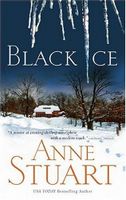 Well, I finally gathered enough courage to try
Well, I finally gathered enough courage to try 
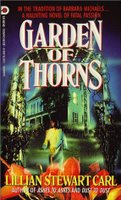 I first tried
I first tried 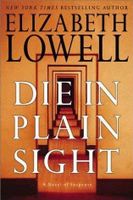
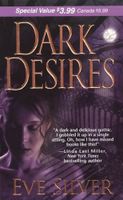

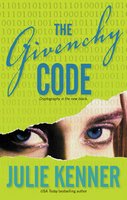

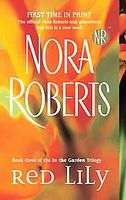
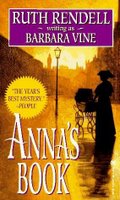

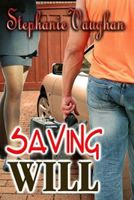
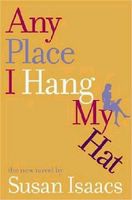 With the exception of Almost Paradise, I've loved every single
With the exception of Almost Paradise, I've loved every single  Well, I can tell you, after yesterday's
Well, I can tell you, after yesterday's 